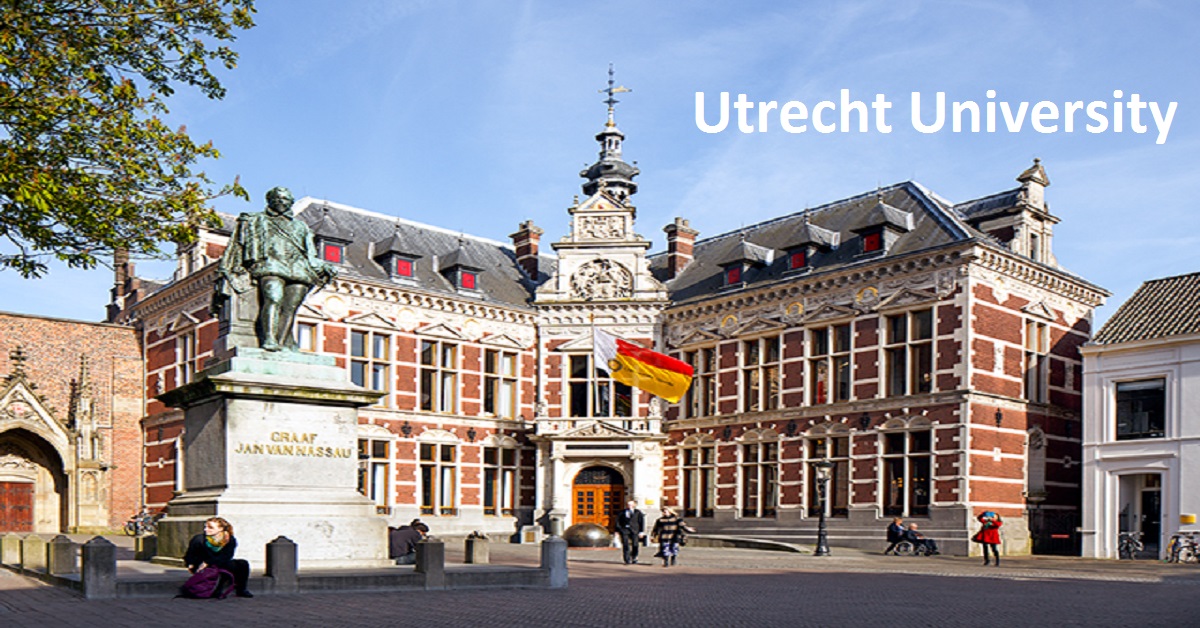As part of Dr. Lieke Stelling’s NWO-funded VIDI project Discovering Europe in the Early Modern Period: How Literary Bestsellers Shaped a Diverse Community, 1517-1713, Utrecht University is recruiting a PhD candidate. In cooperation with the other project members, the PhD candidate will work on their own sub-project Cities as European Microcosms in the Early Modern Literary Bestseller, 1517-1713. Focusing on the theme of ‘cities’, the Researcher will study how early modern fictional narratives depict cities as European microcosms and how these portrayals correspond with early modern cultural conceptions of real cities as key nodes of European society.
The PhD project is one of three closely related projects (the other two on multilingualism and religious pluralism) that explore the role of literature in the development of an understanding of Europe as a shared cultural space. The main corpus for all three projects consists of fictional narratives that were published in print across Europe in at least four different languages. In collaboration with cultural institutions in Brussels and Mechelen, and a wide network of international scholars, the VIDI project will offer thought-provoking alternative views of Europeanness to the (future) shapers of European democracy. This PhD project, that will be supervised by Dr. Lieke Stelling and Prof. Arnoud Visser, provides a great opportunity to work in a dedicated, multilingual research environment that offers a variety of training programmes and possibilities to acquire international research experience.
A more detailed research outline, including potential source material, may be obtained from Dr. Stelling.
The tasks of the PhD candidate include:
- literary analysis of early modern fictional narratives in two or more languages;
- completing and defending a PhD dissertation within four years;
- active participation in the meetings of the project research group and affiliated projects;
- presenting intermediate research results at workshops and conferences;
- writing an article;
- co-organizing outreach activities and the project conference;
- following courses in cultural history of the national graduate school.
You will be based at the Utrecht Department of Languages, Literature and Communication (TLC), and will be affiliated to the Institute for Cultural Inquiry (ICON), both of which provide a stimulating and internationally oriented research environment.
Qualifications
We are looking for candidates with a great passion for early modern literature. The successful applicant must have:
- proficiency of and reading knowledge in at least one of the following three languages: Spanish, French, Italian, or a willingness to quickly learn one of them;
- a completed (Research) Master’s degree in early modern literature or a closely related field;
- strong analytical abilities, demonstrated by an outstanding MA thesis and/or publication;
- excellent writing skills in English;
- an open, cooperative attitude and willingness to engage in collaborative research and publication;
- enthusiasm for communicating academic research to non-academic audiences.
Offer
We offer a temporary position (1.0 FTE) for a period of 18 months. Upon a good performance and positive evaluation, the contract will be extended for the remaining period of 30 months (4 years in total). The gross monthly salary ranges between €2,434 in the first year and €3,111 (scale P according to the Collective Labour Agreement Dutch Universities) in the fourth year of employment. Salaries are supplemented with a holiday bonus of 8% and a year-end bonus of 8.3% per year. In addition, Utrecht University offers excellent secondary conditions, including an attractive retirement scheme, (partly paid) parental leave and flexible employment conditions external link (multiple choice model). More information about working at Utrecht University external linkcan be found here.
About the organisation
A better future for everyone. This ambition motivates our scientists in executing their leading research and inspiring teaching. At Utrecht University external link, the various disciplines collaborate intensively towards major societal themes. Our focus is on Dynamics of Youth, Institutions for Open Societies, Life Sciences and Sustainability.
The Faculty of Humanities external linkhas around 7,000 students and 900 staff members. It comprises four knowledge domains: Philosophy and Religious Studies, History and Art History, Media and Culture Studies, and Languages, Literature and Communication. With its research and education in these fields, the faculty aims to contribute to a better understanding of the Netherlands and Europe in a rapidly changing social and cultural context. The enthusiastic and committed colleagues and the excellent amenities in the historical city center of Utrecht, where the faculty is housed, contribute to an inspiring working environment.
The Department of Languages, Literature and Communication external linkoffers Bachelor’s and Master’s programmes in Literary studies, Linguistics, Communication studies, Translation, as well as Dutch, English, German, French, Italian, Spanish and (uniquely in the Netherlands) Celtic languages.
Additional information
For more information about this position, please contact: Lieke Stelling external link(Project Leader), via l.j.stelling@uu.nl. external link
Apply
Utrecht University strives towards enhancing the diversity amongst its staff and students. We explicitly welcome applications from a wide variety of backgrounds and perspectives. If you have the expertise and the experience to excel in this role, then simply respond via the “Apply now” button.
Please enclose:
- a letter of motivation;
- a full academic curriculum vitae, including contact information of two referees who may be approached by the selection committee;
- a research proposal of 500-1000 words, showing how you would approach your topic;
- a copy of relevant diplomas;
- a writing sample in the form of a thesis chapter, paper, or publication in English.
Interviews will be scheduled to take place around late November or early December and are likely to be conducted online, via MS Teams.
The application deadline is 8 November 2021.
